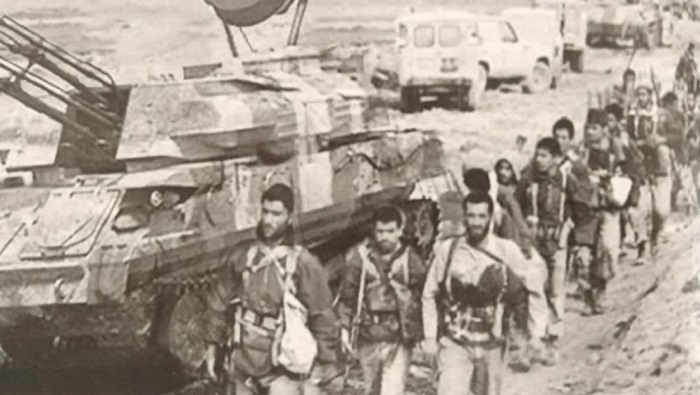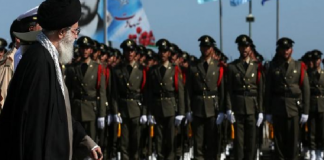
On September 22, President Ebrahim Raisi made a call for unity during his speech commemorating the anniversary of the Iran-Iraq war, a conflict spanning from 1980 to 1988. “Today, our slogan is unity. This display of unity and solidarity is what we have in the light of the Sacred Defense,” Raisi said. He went on to admit that while the war provided a platform for unity against shared external enemies, the end of the conflict saw the foundation of this unity crumble into “despair and defection.”
Significantly, on the same day, Speaker of Parliament, Mohammad Bagher Qalibaf, in his televised statement, warned against deviation from the regime’s core principles. He spoke of an “internal enemy” within various sectors of the nation that could result in “weakness and failure.”
Regime supreme leader Ali Khamenei, on September 6, seemed to echo this sentiment, addressing the challenges of staying true to their principles, “There are no shortage of attractions to create deviation, and this angle has always existed. And today, more than ever.”

Such remarks were mirrored by other officials too. Javad Karimi Ghodousi, a parliamentarian, reiterated the Supreme Leader’s message of persistence, urging his comrades to remain steadfast in their commitment to the regime’s values.
However, the clearest evidence of internal strife came from the IRAN Press news agency on August 22. Their report revealed Khamenei’s advisory to Revolutionary Guards forces against “fatigue and despair,” emphasizing the importance of optimism in leadership.
Concerns over diminishing morale are not isolated incidents. Recent uprisings have spotlighted the regime’s vulnerabilities. Hamid Abazari, advisor to the commander of the Revolutionary Guards, starkly noted the failures he’s observed within the establishment. “I don’t know what will happen tomorrow because I have seen great commanders fall short,” he admitted.

Speaking of the potential fallout from such divisions, he cautioned, “We forget, we become doubtful, we become skeptical, we become tired, we become hopeless. These are destructive diseases; we must be vigilant against these diseases.” In the backdrop of these acknowledgments, it remains to be seen how the leadership plans to galvanize its forces and navigate these tumultuous waters.

MEK Iran (follow us on Twitter and Facebook), Maryam Rajavi’s on her site, Twitter & Facebook, NCRI (Twitter & Facebook), and People’s Mojahedin Organization of Iran – MEK IRAN – YouTu







